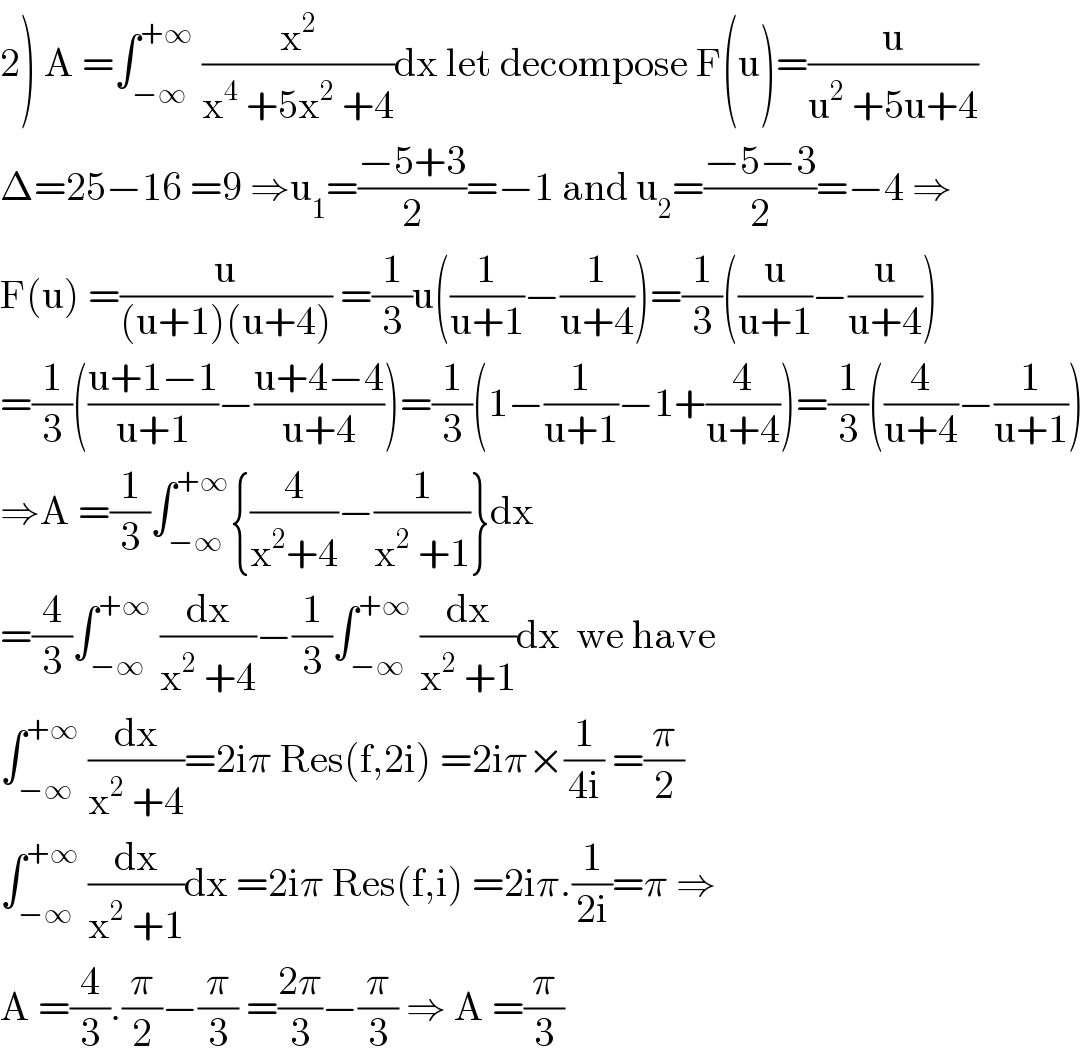
Question and Answers Forum
Question Number 122739 by mohammad17 last updated on 19/Nov/20
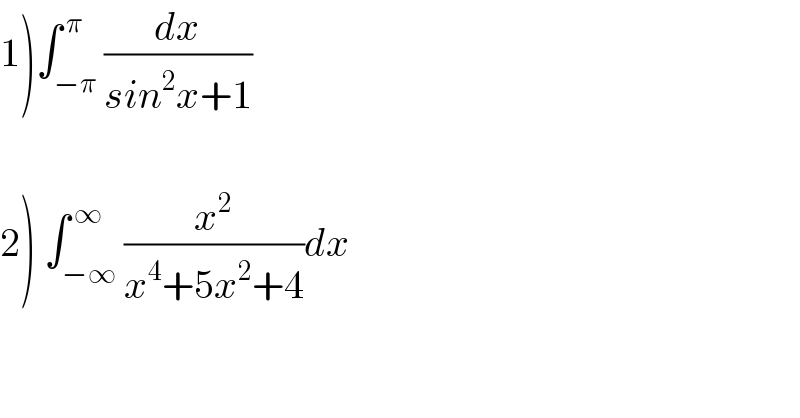
Answered by Dwaipayan Shikari last updated on 19/Nov/20
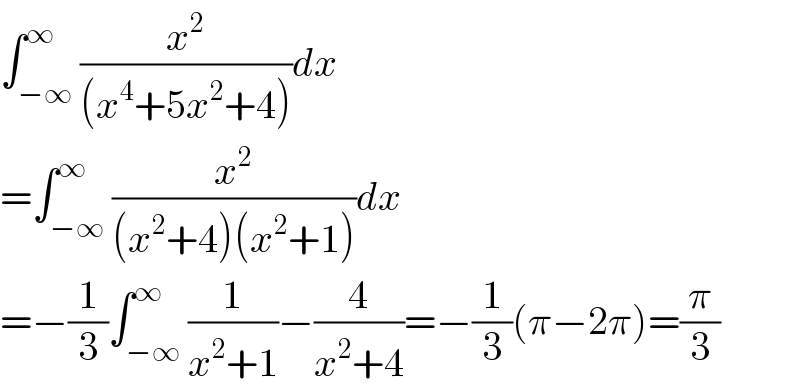
Commented by mohammad17 last updated on 19/Nov/20

Answered by MJS_new last updated on 19/Nov/20
![∫(dx/(1+sin^2 x))= [t=tan x → dx=(dt/(t^2 +1))] =∫(dt/(2t^2 +1))=((√2)/2)arctan ((√2)t) = =((√2)/2)arctan ((√2)tan x) +C ∫_(−π) ^π (dx/(1+sin^2 x))=4∫_0 ^(π/2) (dx/(1+sin^2 x)) ⇒ answer is π(√2)](Q122742.png)
Commented by mohammad17 last updated on 19/Nov/20

Commented by MJS_new last updated on 19/Nov/20

Commented by mohammad17 last updated on 19/Nov/20

Answered by bemath last updated on 19/Nov/20
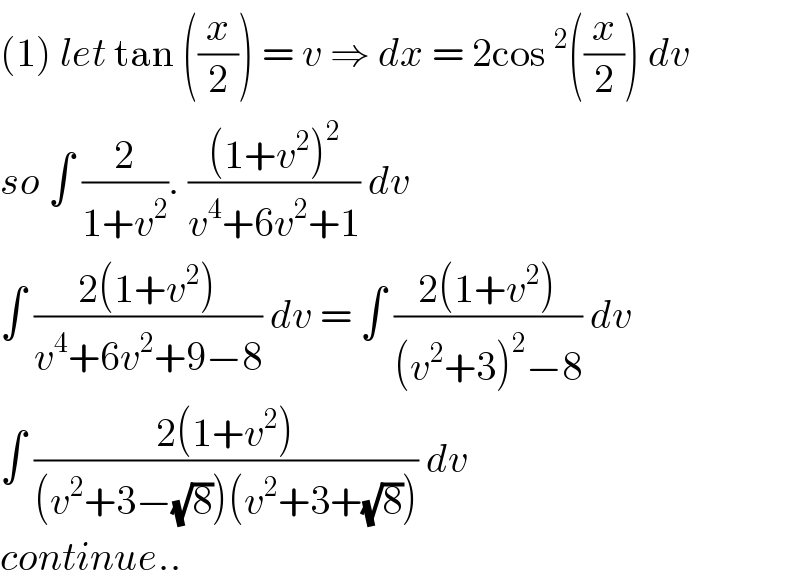
Answered by Bird last updated on 19/Nov/20
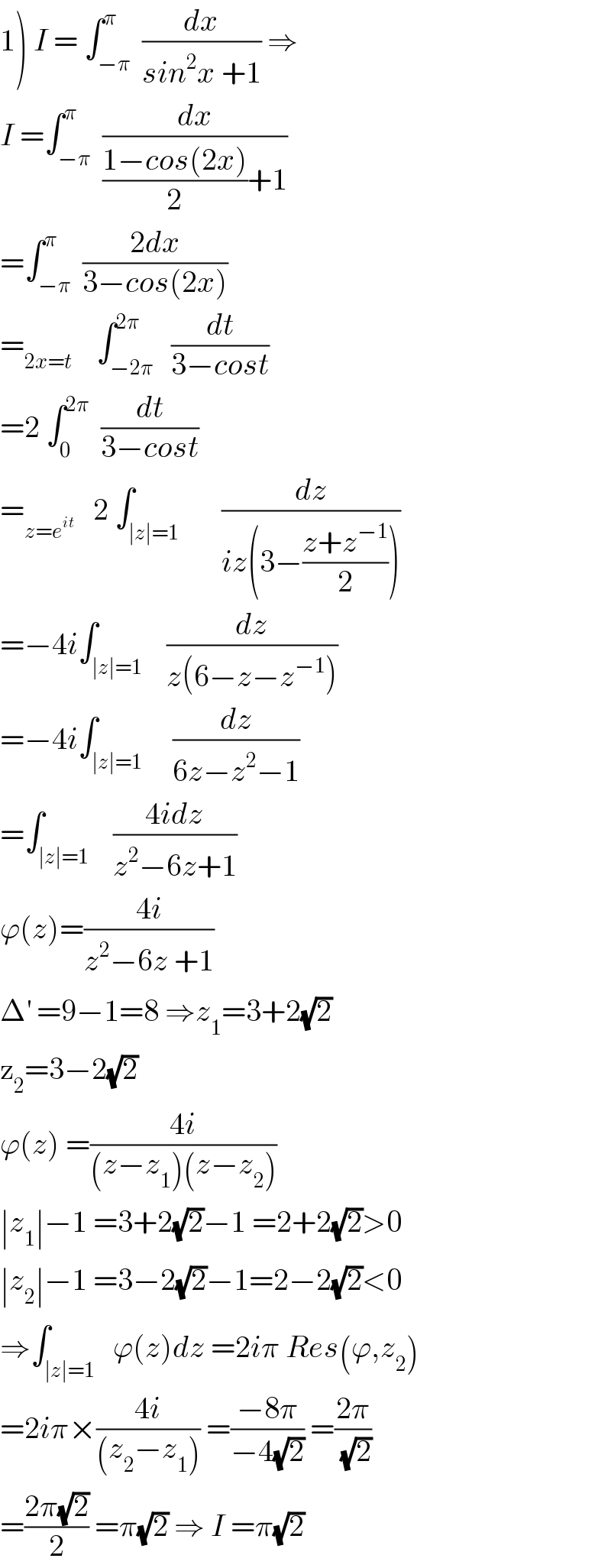
Answered by mathmax by abdo last updated on 20/Nov/20
